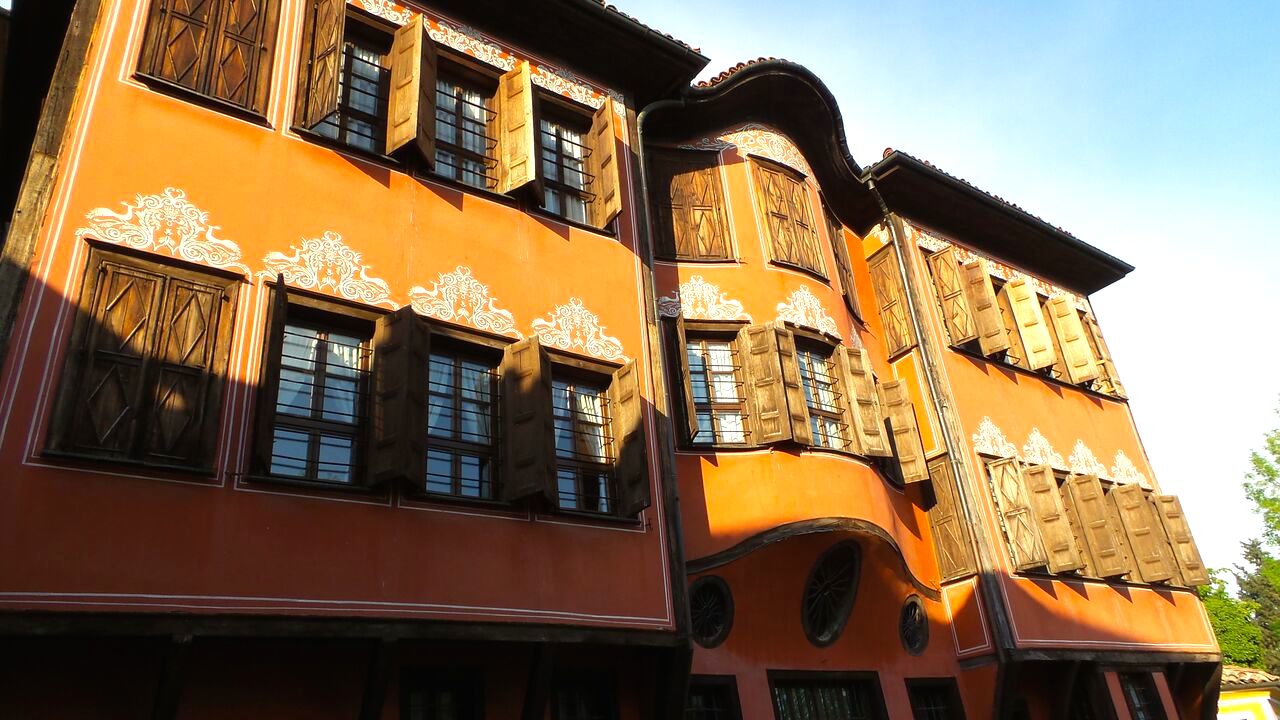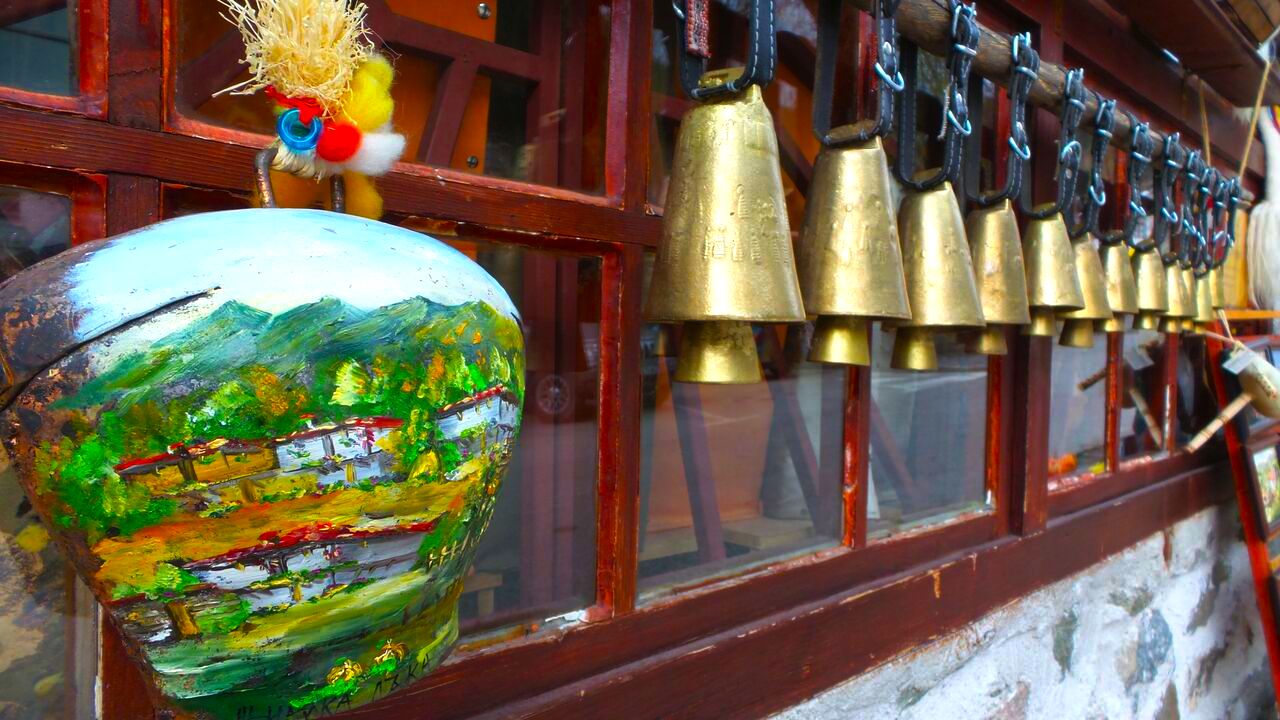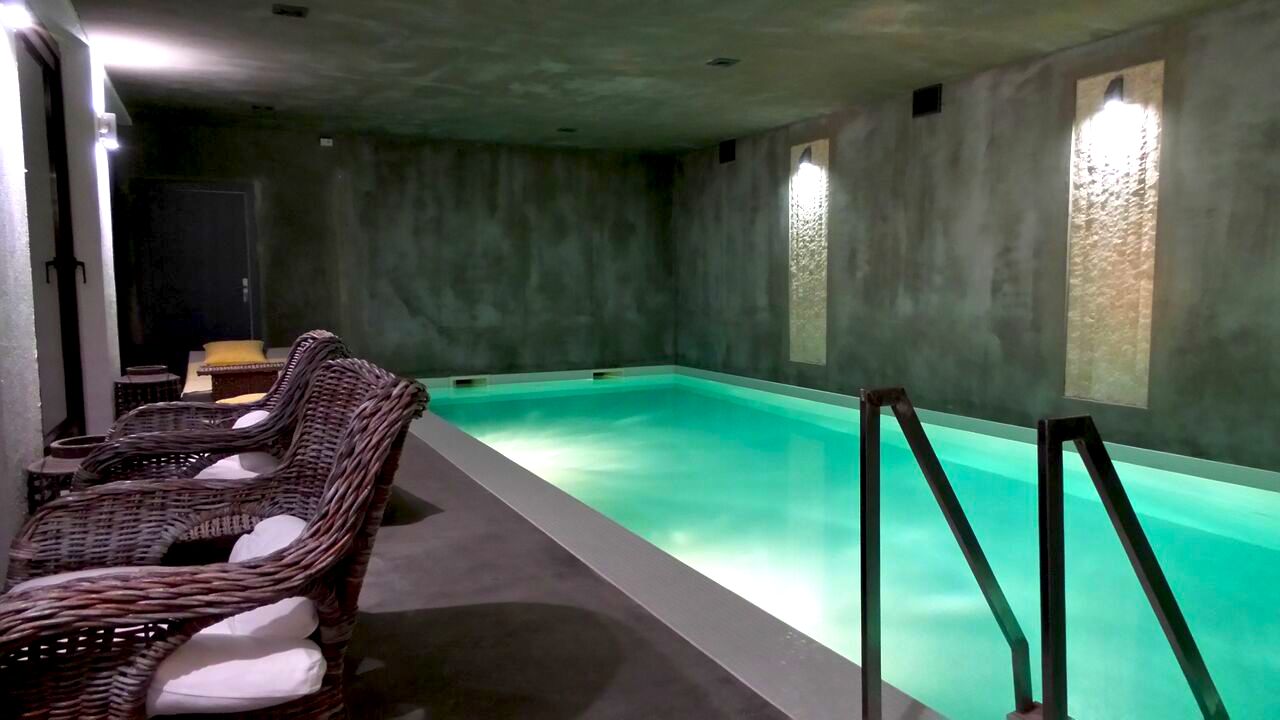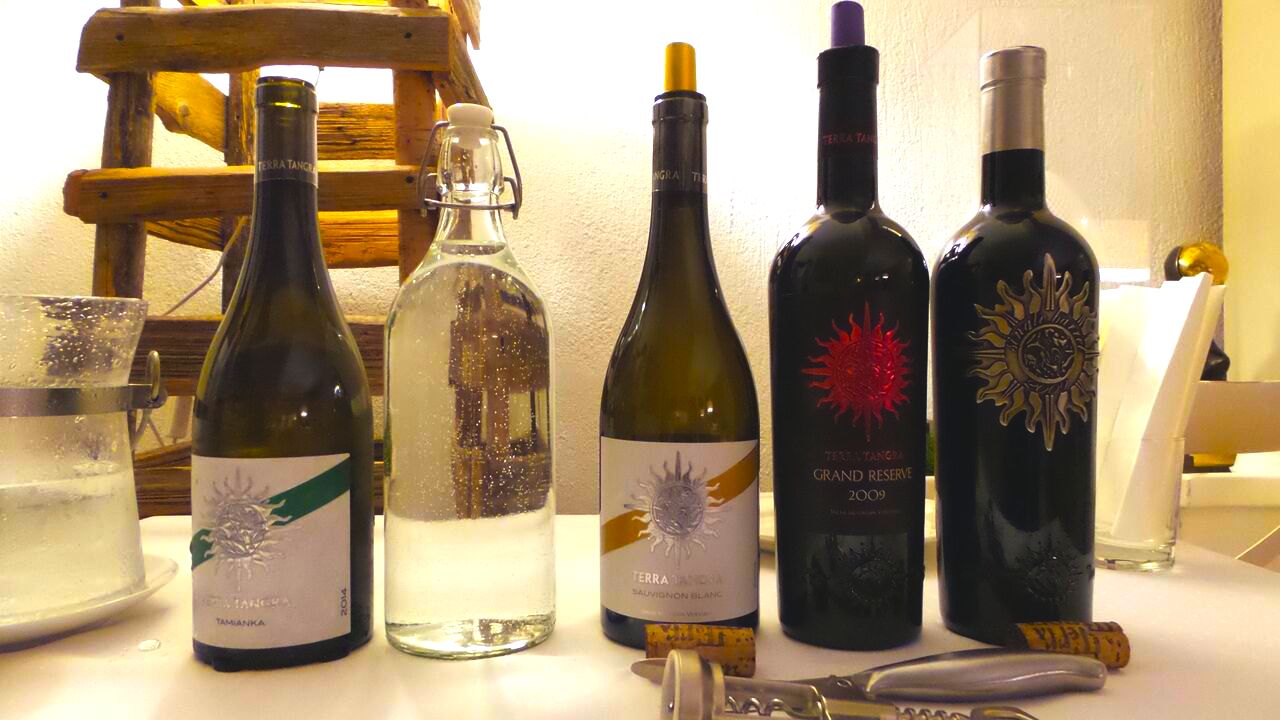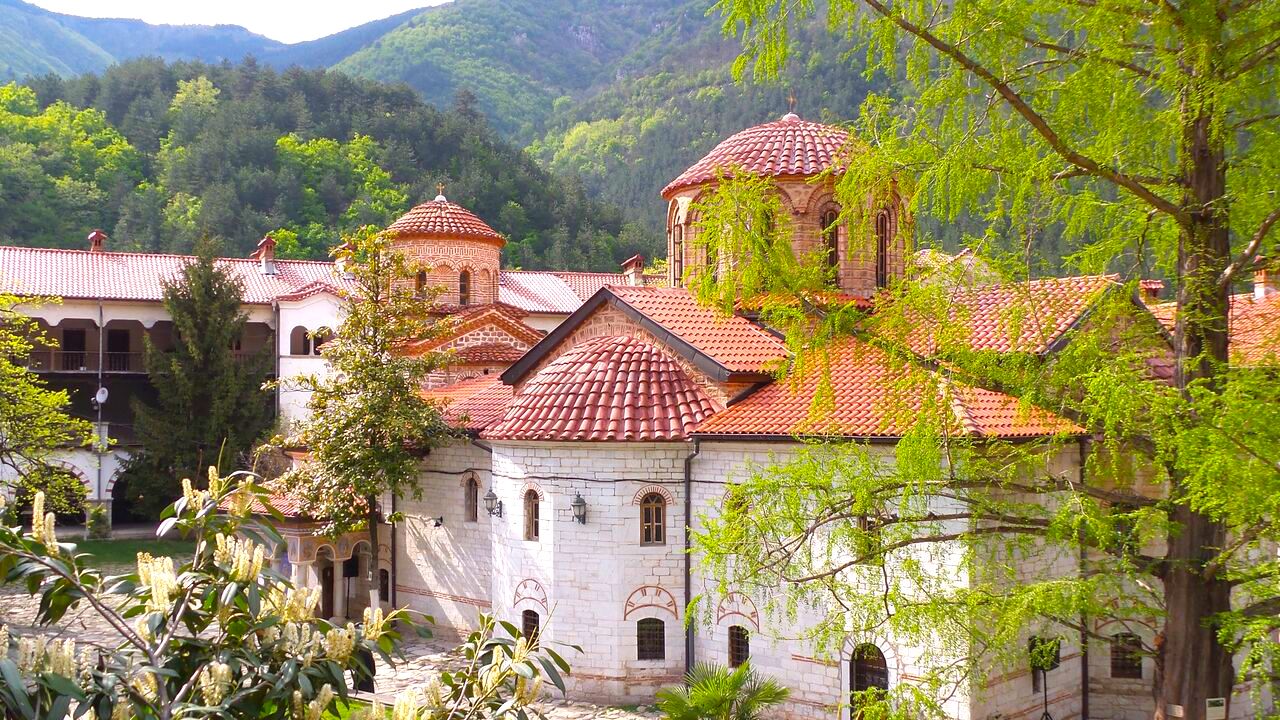By Lucy Fox
Team RMG, in the care of Ros Milani Gallieni, set off to the wilds of Bulgaria with only Ros’s word that we would love it.
Our group consisted of: Ros, Lucy Fox and Samantha Gabriel who are the nucleus of RMG PR & Events. Joining us were Lisa Rawlings, a top sales and marketing lady who represents many fantastic hotels around the world, Leela Miller who is a yoga teacher par excellence and the intrepid Bob Walton, Founder of the Nth Degree – the world’s leading private dining club, and our only man.
Sadly security at terminal 5 were vile to say the least so be warned travellers, at Gatwick you are allowed many more liquids in a large plastic bag but not so Heathrow, just a minute bag which must be sealed.
We arrived in Sofia to be met by Darina, for who nothing is too much trouble and runs the beautiful Villa Gella, our home for the next few days. The journey from the airport is interesting as there are the remains of communist architecture in the form of hideous blocks of flats which apparently become like ovens in the summer sun and freezers in the winter. Whilst excavating the subway system workmen have discovered many Roman ruins, cleverly they are building the underground around the ruins so when you arrive at the equivalent of Sloane Square you can see the preserved foundations of the Roman settlement, thus making a feature of a much needed transport system.
Our first stop was the Boyana Church of St Nicholas and St Panteleimon, a relatively small Christian temple which was built in stages in the 11th, 13th and 19th centuries and is on USESCO’s World Heritage list. The church owes its popularity to its beautiful frescoes which date from 1259. Our guide, Belcho Belev is a tremendous character who clearly loves his job and has a passion for the Boyana Church. He uses a defunct radio ariel to point out frescoes of interest with a wicked smile whilst urging us to ‘Come follow my pointy stick’!
The journey from Sofia to Villa Gella is about 3 hours so half way we Darina suggested that we stop for some much needed refreshment. Now, if we had stopped in a UK service station we certainly wouldn’t have had some surprisingly good tapas and a halfway decent bottle of local rose but this we certainly did. For the founder of a top dining club and former chef this experience was a first for Bob but he manfully tucked in and claimed to rather enjoy it.
The scenery is stunning and the Thracian lands obviously fertile. Bulgaria’s history is fascinating as they were first ruled by the Thracians, then Romans, then the Byzantines and Ottomans, on to communism and finally the new democracy so the architecture is eclectic, the food divine, the people charming and the wine delicious.
Villa Gella is high up in the Rhodope Mountains, south of the city of Plovdiv. The villa is family owned and has 6 double bedrooms with their own bathroom and each one is individual in style. All are extremely comfortable with pure wool duvets, underfloor heating and open fireplaces. The huge terrace has panoramic views over the mountains and you can see horse drawn carts going up and down the lane, the silence broken only by the sound of the sheeps bells.
The family at the villa are: Darina who looks after your every need, Dimka who is a sublime cook and her husband Yvan who is in charge of all things outside. Yvan and Dimka are both 80 with energy of 40 year olds which is amazing but they put this down to all the good things which come from the mountains. Darina has spent the last 4 years studying herbs and plants which grow locally and at the villa they make natural herbal teas to treat all sorts of ailments including; high blood pressure, asthma, ulcers and rheumatism to name a few. Every morning guests are encouraged to drink a small shot of Dimka’s apple vinegar with a little honey and water which cleans out the system. The tea is delicious and even Ros, who was brought up in Italy so a committed coffee drinker, found that she hadn’t missed her caffeine fix at all. Breakfast can be anything you choose but pancakes, fresh bread, home -made yoghurt with local honey, home- made jam, fruit and delicious farm eggs are standard.
The nearest town to Villa Gella is Shiroka Laka whose population is 800 people. In Ottoman times the Sultan gave the villagers 38 days to create their own church, confident that they wouldn’t be able to complete the task; they worked night and day and the church was completed on time and is still standing. The village has many ruined houses which is sad as these must once have been beautiful places but there are charming shops selling local artefacts and produce including amazing jam and honey.
We were all beginning to unwind from the pace of London life at this point so we spent the afternoon enjoying the villa, either taking a swim or a walk or a massage with the most brilliant local lady Joy who has magic hands. Her husband is an orthopaedic surgeon who was very helpful with advice on various problems. We then had a real treat which was a yoga Nidra session with Leela. This practise promotes a sleep-like state which yogis report to experience during their meditations. The point is to achieve the deepest possible state of relaxation while still maintaining full consciousness which some achieved, there was however, suspiciously heavy breathing emanating from certain members of the group!
The first evening we had a wine tasting with wine from Terra Tangra, a newly established winery situated on the south west slopes of the Sakar Mountains in the Thracian lowlands. Terra Tangra is an award winning winery which reflects the quality and style of modern Bulgarian wine making and it was a revelation. They produce varieties of red and white wine but just one rosé using and ancient Bulgarian grape which makes this a very difficult wine to produce but the result can rival any of the finest rosé’s that we had ever tasted. All the grapes are hand- picked and the farm also grows its own vegetables which we had for dinner with melt in the mouth steak from a farm near to Terra Tangra.
Bulgaria is well known for its traditional music and nearby there is one of the best academies for music and art. For our last evening the wonderful Villa Gella team had arranged for us to hear Bulgarian bagpipes played in the old style. The musician came in traditional costume woven with various symbols which explain about the terrain and the music. The pipes are made of a goat skin with 4 pipes of varying lengths attached so when the pipe is turned upside down it resembles a goat – well that’s the theory. The sound is very different to the Scottish and Irish pipes that we are used to and we all took to the floor to attempt a local dance with a bit of guidance from Dimka and Ivan who were much more limber than the rest of us. We were asked if we would like to have a go at the pipes and Lisa was a great sport and embraced the task with gusto, cheeks blown out and face going red with effort she eventually managed to get them to play, rather in the manor of a professional sax player – very impressive.
For each meal we started with a salad, and we had fennel and cucumber or beetroot and carrot with amazing local tomatoes, the smell and taste one only dreams about when wandering dispiritedly around the local shops in England. Main courses can be trout caught nearby, chicken with cheese crust or vegetable lasagna and for pudding Dimka made an aromatic pumpkin tart which is then followed by cheese and home- made salami. This might all sound rather heavy but on the contrary, it was light and delicious.
Our visit was in the spring but for those who love winter sports Villa Gella couldn’t be in a better position being close to the slopes of Pamporovo so would make the perfect place for either a family, as the slopes are for beginners to advanced, or a group of friends who love skiing and snowboarding but want a lovely place to return to after a days sport to unwind and relax.
It was with great sadness that we had to leave this beautiful place so with heavy hearts we set off for Polvdiv. En route we visited Bachkovo Monastery which was founded in 1083. Although the monastery survived the first waves of Turkish invasion it was later looted and destroyed, but restored near the end of the 15th century. This is a beautiful and tranquil place and the ancient Refectory and monastic kitchen, restored in 1601, are worth a visit alone but in the dining room the frescos of ‘The Day of Judgement’, ‘The Paradise’ and ‘The Seated Virgin’ take your breath away with the figures depicted making it hard to believe that they were painted in the 1604.
Povdiv is the second largest city in Bulgaria whose history spans 6,000 years with traces of a Neolithic settlement dating to roughly 4000 BC which makes it among the world’s oldest city. The old part of the city is beautiful with cobbled streets and medieval buildings galore. Whilst building a new music academy an entire Roman amphitheatre was discovered and this is now the home to the Verdi music festival held every July. Plovdiv is to be the Bulgarian host of the European Capital of Culture in 2019 which will mean more flights into the city so with the newspapers telling us that Bulgaria is the best place for a bargain holiday now is the time to visit this lovely country………so Ros was right, we all loved it and will be returning very soon – that’s a promise.
